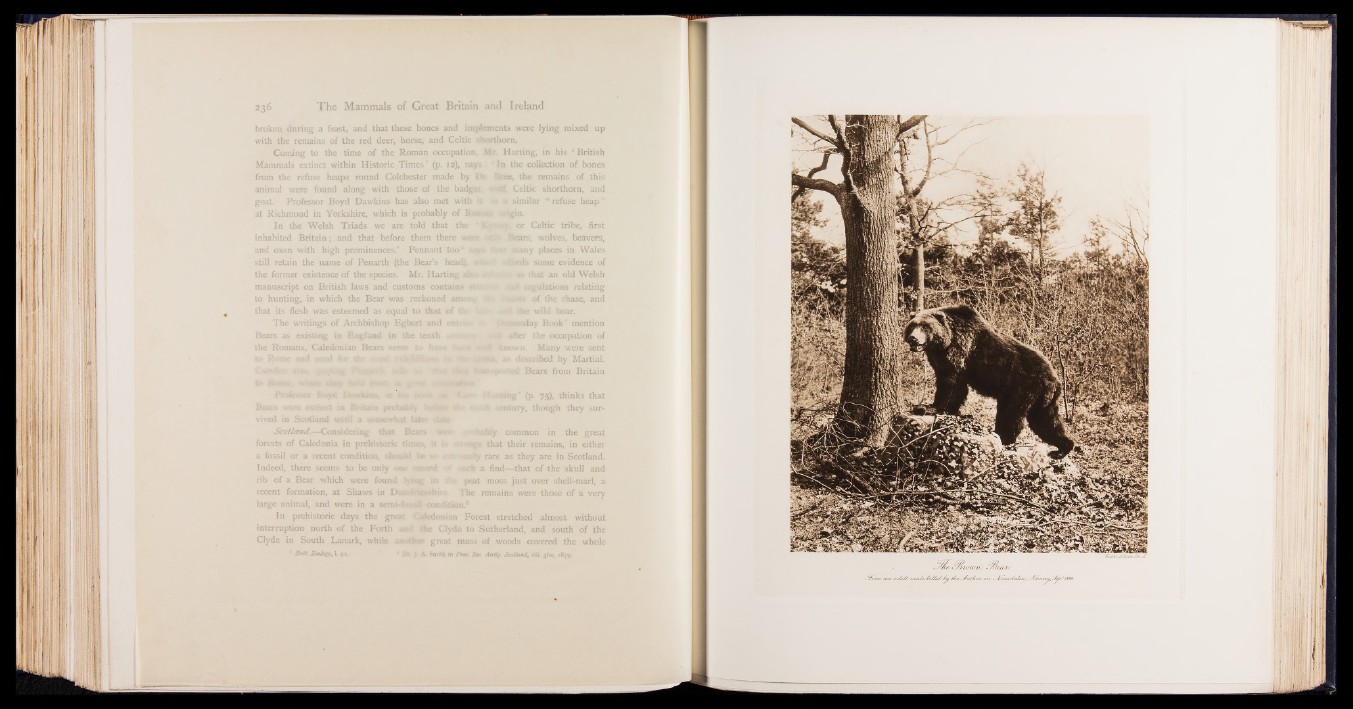
broken during a feast, and that these bones and imj
with the remains of the red deer, horse, and Celtic :
Coming to the time of the Roman occupation,
Mammals extinct within Historic Times ’ (p. 12), say
from the refuse heaps round Colchester made by 3
animal were found along with those of the badge
goat. Professor Boyd Dawkins has also met with
at Richmond in Yorkshire, which is probably of Ro
In the Welsh Triads we are told that the
inhabited Britain; and that before them there wot*
and oxen with high prominences/ Pennant too1 sa
still retain the name of Penarth (the Bear’s head),
the. former existence of the species. Mr. Halting ate'
manuscript on British laws and customs contains st:
to hunting, in which the Bear was reckoned amor;}
that its flesh was esteemed as equal to that of ih -■
The writings of Archbishop Egbert and em- /-
Bears as existing in England in the tenth c~ -
the Romans, Caledonian Bears seem to have i>
;ments were lying mixed up
orthom.
Mr. Harting, in his ' British
;n the collection of bones
iree, the remains of this
4f, Celtic shorthorn, and
■ similar “ refuse heap ”
■v?gin.
vry, or Celtic tribe, first
: Bears, wolves, beavers,
many places in Wales
s#eads some evidence of
m as that an old Welsh
sday Book’ mention
;r the occupation of
n. Many were sent
escribed by Martial.
Bears from Britain
Scotland.— Considering that
forests of Caledonia in prehistoric
a fossil or a recent condition, she
Indeed, there seems to be only 0
rib of a Bear which were found
recent formation, at Shaws in D
large animal, and were in a semi
In prehistoric days the gre
interruption north of the Forth
Clyde in South Lanark, while a
1 B rit. Zoology, L 91.
m /t siting’ (p. 75), thinks that
& century, though they sur-
’■ ibiy common in the great
s, it ; that their remains, in either
“ ily rare as they are in Scotland,
h a find— that of the skull and
£ in th<; peat moss just over shell-marl, a
esshire. The remains were those of a very
dedonian Forest stretched almost ■ without
flie Clyde to Sutherland, and south of the
r great mass of woods covered the whole
A: Smith in Proc. Soc. Antiq. Scotland, xiii. 360, 1879.
J